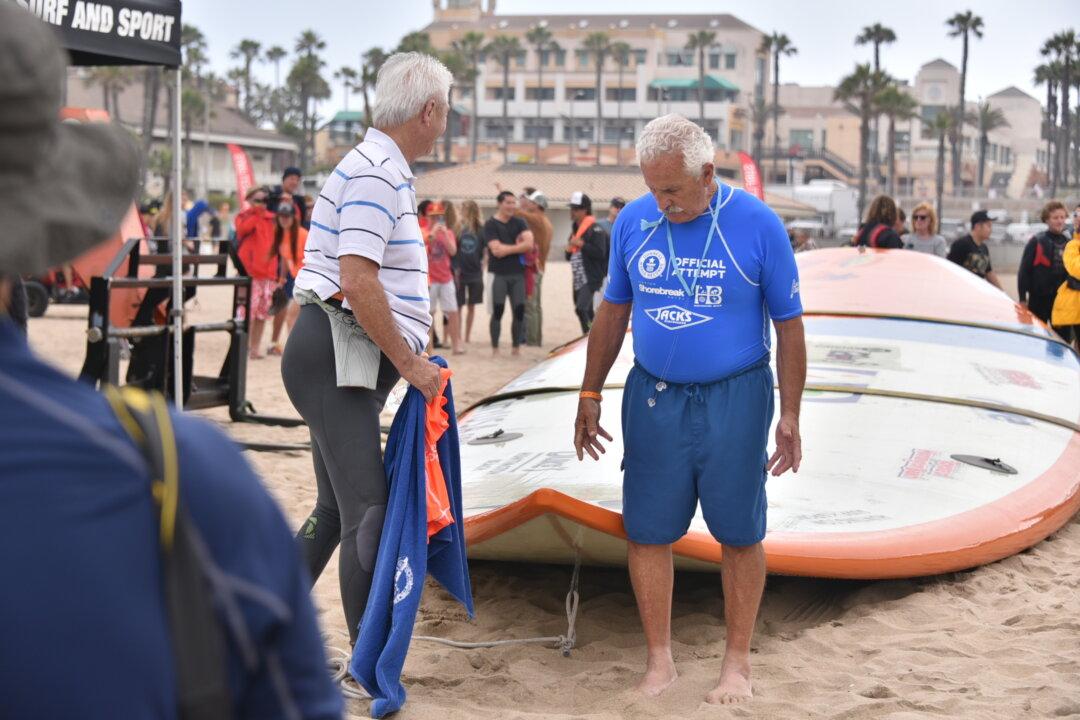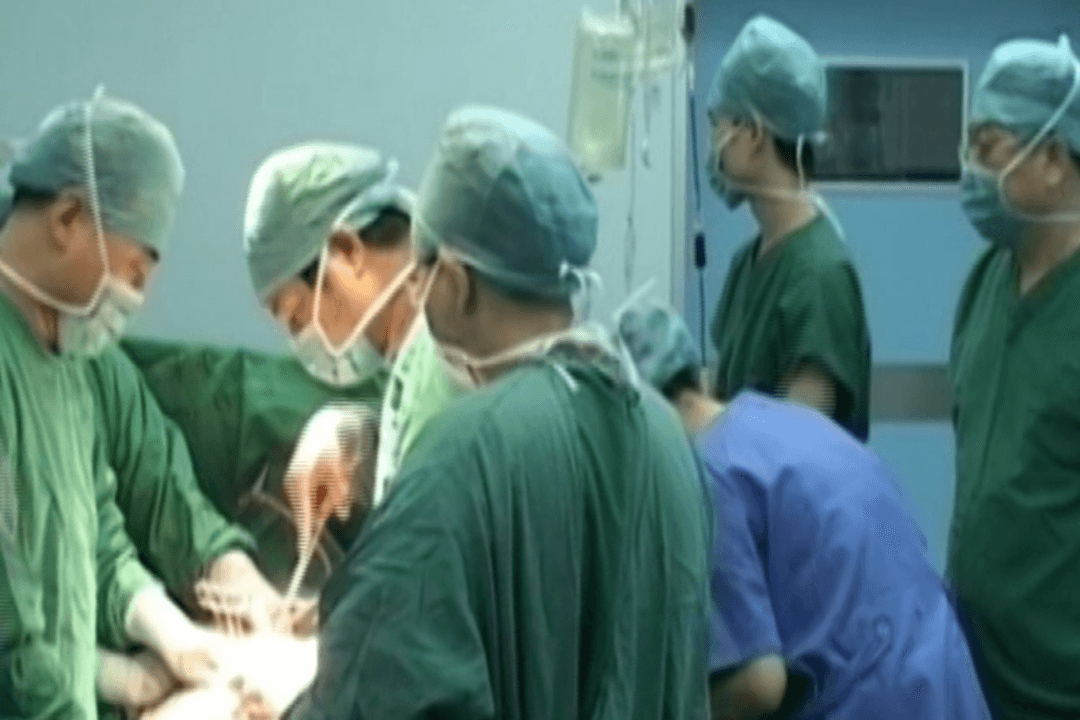“Killed to Order,” a documentary about organ tourism and illicit organ procurement in China, was presented at the Awareness Film Festival at the UCLA Department of Film, Television and Digital Media’s James Bridges Theater on Sept. 11.
The 10-minute film, written and directed by Kathryn Shakespear, was produced and filmed in Australia. It fully engaged the audience, especially the buildup toward the end.
The film begins with a woman telling her elderly father that she is expecting a baby–his first grandchild. Her father seems happy but cautious in his response, saying he hopes he will live to see his grandchild grow up as he was just diagnosed with a fatal kidney disease and is trying to locate a kidney transplant.
During his research the man discovers that China has extensive organ transplant capabilities and can provide transplants to replace his failing kidneys.
Later, his daughter calls him to tell him that in China people are killed on demand to provide organs for foreign transplant patients.
As the film progresses towards the last scene, the man is in a cab, traveling to the airport.
I won’t give away the ending in case you have the chance to watch this worthy short documentary.
China’s Secret Organ Source
Large numbers of people, who are in desperate need of organ transplants, from the United States and other countries, have flocked to China every year where hospitals have promised short waiting times and an abundance of fresh, healthy organs.
Since 2006, several independent investigators have reported research results saying that Chinese military hospitals, courts, labor-reeducation camps, and police have been involved in harvesting and selling organs from prisoners for profit. In addition, most of the prisoners are not criminals, but prisoners of conscience, mainly captive Falun Gong practitioners, a spiritual group that has been persecuted in China since 1999.
In 2006, an investigation was conducted by David Kilgour, a former Canadian Secretary of State (Asia-Pacific), and David Matas, a prominent human rights lawyer. Their report
Doctors Against Forced Organ Harvesting (DAFOH), a non-profit organization founded by medical doctors in 2007, state on their website www.dafoh.org : “Forced organ harvesting has enabled the expansion of a commercial organ industry in China… The onset of the persecution of Falun Gong in 1999 coincides with the exponential growth of the transplant industry in China… Without a public organ donation program, wait times for transplant organs are implausibly short. Average wait times in China are 1 to 4 weeks.”
Sky TV Investigation
Also in 2006, Sky TV aired a report that confirmed important claims of live organ harvesting from prisoners in China saying: organs for transplantation are very plentiful in China; they are available on demand; the organs are supplied from prisoners; prisoners are killed after they are found to match a patient who is awaiting a donor organ.
Sky TV reporter Dominic Waghorn, and at least one other staff member from Sky TV, visited the Orient Organ Transplantation Center in Beijing with a hidden camera, posing as someone whose father needed a liver.
Waghorn began his report by noting that in China, unlike the West, there is “a seemingly endless supply of livers, the reasons why are deeply sinister.”
The nurse who welcomed him at the hospital cheerfully explained that their hospital could get organs “the fastest” because it has the “best connections.”
Waghorn explained that the hospital publicly admitted its links to China’s paramilitary police.
International Initiatives
Since 2006, several UN Special Rapporteurs have asked China’s government for an explanation about organ pillaging from live Falun Gong practitioners, but it provided no meaningful answers, simply denying the charges.
In December 2006, Australian transplant hospitals were the first to restrict training of surgeons from China.
In March 2008, Israel wrote an “Organ Transplant Law,” bringing transplant tourism and organ between Israel and China to a complete halt.
In September 2012, the U.S. Congress held a hearing on “Organ Harvesting of Religious and Political Dissidents by the CCP,” condemning the practice.
In June 2013, U.S. Congressional representatives introduced H.Res. 281, calling on China “to immediately stop the practice of organ harvesting from its prisoners, particularly from Falun Gong prisoners of conscience and members of other groups.”
In November 2013, DAFOH presented a petition to the UN High Commissioner for Human Rights signed by 1.5 million people from over 50 countries, calling for an end to China’s forced organ harvesting.
In December 2013, the European Parliament passed a resolution against China’s unethical organ procurement, calling for extensive action to end the practice.
In April 2014, the Transplantation Society and the Declaration of Istanbul Custodian Group sent an open letter to Xi Jinping concerning “corrupt practices of doctors and officials who obtain organs from executed prisoners illegally for sale to wealthy foreign patients from around the world.”




